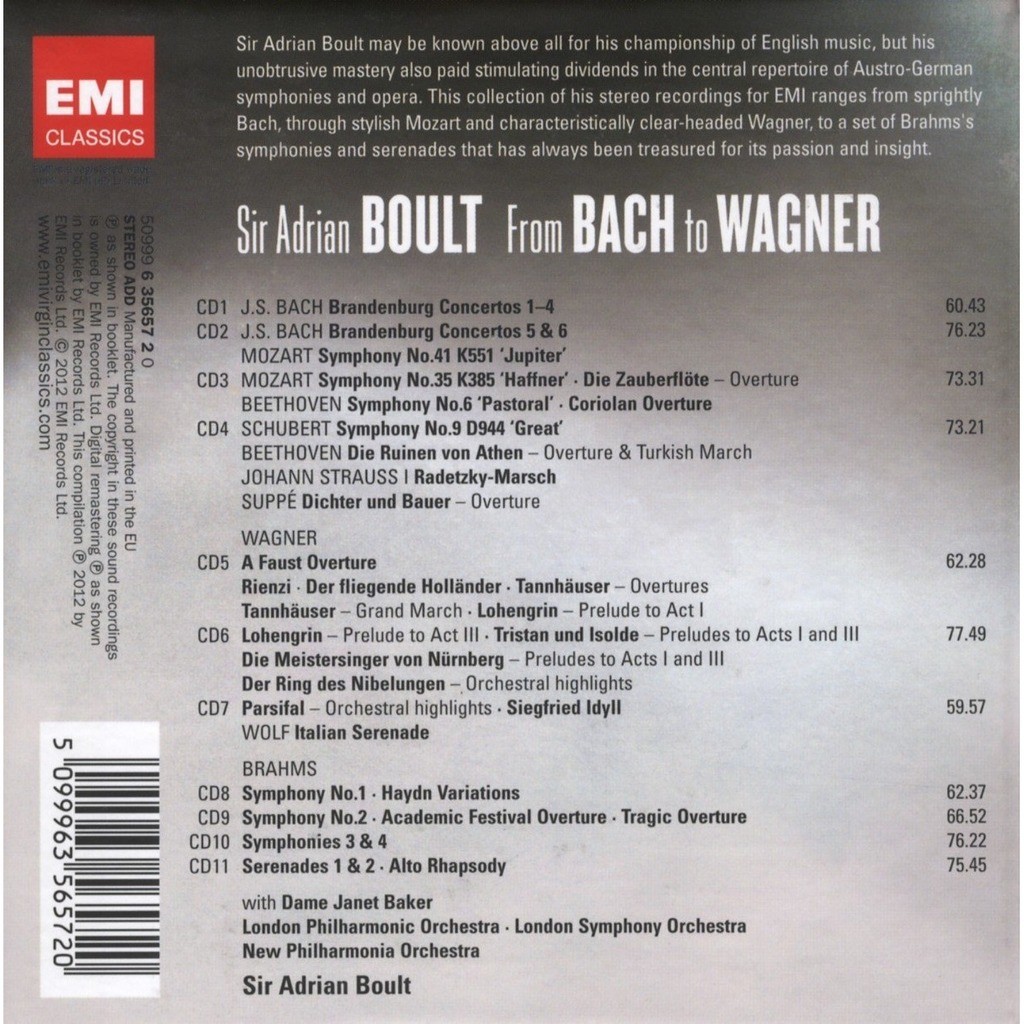Program Notes Program. Click on the title of each concert to enjoy the program notes. Brahms' Symphony No. 2 November 20 & 21 Brahms: Academic Festival Overture. The Academic Festival Overture came first. One of Brahms’s old friends was a con. Also caps off the Academic Festival Overture in the style of a grand chorale. More Brahms Academic Festival Overture Program Notes videos.
Program Notes 2015/16 Season Click on the title of each concert to enjoy the program notes. November 20 & 21 Brahms: Academic Festival Overture, op. 80 Stravinsky: Concerto in D Major for Violin and Orchestra Brahms: Symphony No. 2 in D Major, op. 73 October 9 & 10 Verdi: Overture to La forza del destino Hagen: Symphony No. 5 - World Premiere Respighi: Fontane di Roma (Fountains of Rome) Respighi: Pini di Roma (Pines of Rome) September 18 & 19 Schoenberg: American Symphony Beethoven: Symphoy No.


The University of Breslau (now Wroclaw) decided to give Brahms a lofty honorary Doctor of Philosophy degree. The degree came with a pompous Latin sentence describing Brahms as 'the foremost composer of serious music in Germany today.' Brahms had already been offered an honorary degree years earlier from the University of Cambridge. But he didn't accept it, since he hated sea travel and was sickened by the news that the English were going to throw lavish celebrations for him. But there was no sea to cross this time. Brahms was rather flattered by the University of Breslau's offer, and sent them a little 'thank-you' postcard.
He said he would come to Breslau next year, and hoped that he could enjoy 'doctoral beer and skittles' with them. (Very amusing!) Apparently this wasn't really enough though for them though. A friend told Brahms that the University actually expected him to return the gesture by writing a piece of music for them! Perhaps some kind of grand, spectacular symphony, or a painfully complicated choral work. You know, something that fitted the Latin quote on his degree. So Brahms, perhaps a bit annoyed at this, went ahead and wrote an overture in the summer of 1880 (I see it as his doctoral thesis!). The result was probably the opposite of what the University faculty expected: a straightforward tongue-in-cheek medley of student songs celebrating drinking and general rowdiness, overflowing with merriment!
Brahms himself conducted the premiere in Breslau (January 1881). All the top brass from the university sat in the front row - and they weren't very impressed! It's actually difficult to know exactly how ironic Brahms was being. Was he lightly mocking the academics, or attacking their pretentious Latin citation? Or maybe he thought that he may as well have some fun writing the piece, since he was obliged to compose it! The Overture's Music The Academic Festival Overture, despite being a fun-filled booze-up, is actually extremely well-written. Brahms uses a very solid structure for the piece, and his massive orchestral forces bring the jolly student songs to dazzling life.
It opens with a quiet but slightly dark melody, based on the Radezsky march (which Brahms loved). After the opening, we hear the first of the four student songs, Wir haben gebauet ein stattliches Haus ( We have built a stately house) in the trumpets.
This song then blends with the opening melody in a triumphant blast of sound. Soon afterwards we hear the tune Landesvater ( Father of his country) played majestically by the strings. Afterwards comes my favorite tune in the Overture, Was kommt dort von der Hohe? ( What comes from there on high?).
It's a lively song which was sung while new undergraduates were undergoing their initiation ritual! Brahms repeats all these melodies, merging and colliding them in a powerful build up to the glorious last student song in the Overture: Gaudeamus Igitur ( Therefore, let us be merry). This ancient song is a celebration of German student-life in general, inviting all students to enjoy their time now since they'll die eventually. Brahms ends the Academic Festival Overture in a rousing version of this song, using the powers of the full orchestra.
Overture
It's simpler and more fun to listen to than some other pieces like the or even the. These are still great pieces, but more typically complicated. Here's a great interpretation conducted by Leonard Bernstein, who manages to get the tempo just right (not too slow, not too fast).
The Academic Festival Overture is one of Brahms's most popular pieces. I hope you've enjoyed it! This recommended recording is form conductor Marin Alsop with the London Philharmonic Orchestra. This is an energetic and colorful performance which captures the various shades of irony in the piece.
I would prefer a slightly faster tempo, but everything else is solid enough that it's not really a problem. Also comes with a performance of the 1st Symphony.
Free Detailed Road Map of Riyadh. We are currently not able to offer PDF maps or the original Detailed Road Map of Riyadh map file editable in Adobe Illustrator. Riyadh road map ksa. Riyadh map, the capital city of Saudi Arabia shows major landmarks. Download Free Map of Saudi Arabia in PDF, JPEG. Riyadh map showing the road network.
Brahms Academic Festival Overture

Another recording I'm partial to is the delicious outing by Wolfgang Sawallisch. Again with the London Philharmonic! Sawallisch brings out the bass end of the piece more and increase the tempo slightly more than Alsop, creating a more powerful mood very suited to the faster parts of the work.
Brahms Academic Festival Overture Lyrics
The different textures are excellently crisp in this recording as well. Available on Seraphim. Of course, you'd not want to spoil the overture by listening to it through a poor audio setup. See the section for info on getting great sound.
You might also be interested in, or his exciting.